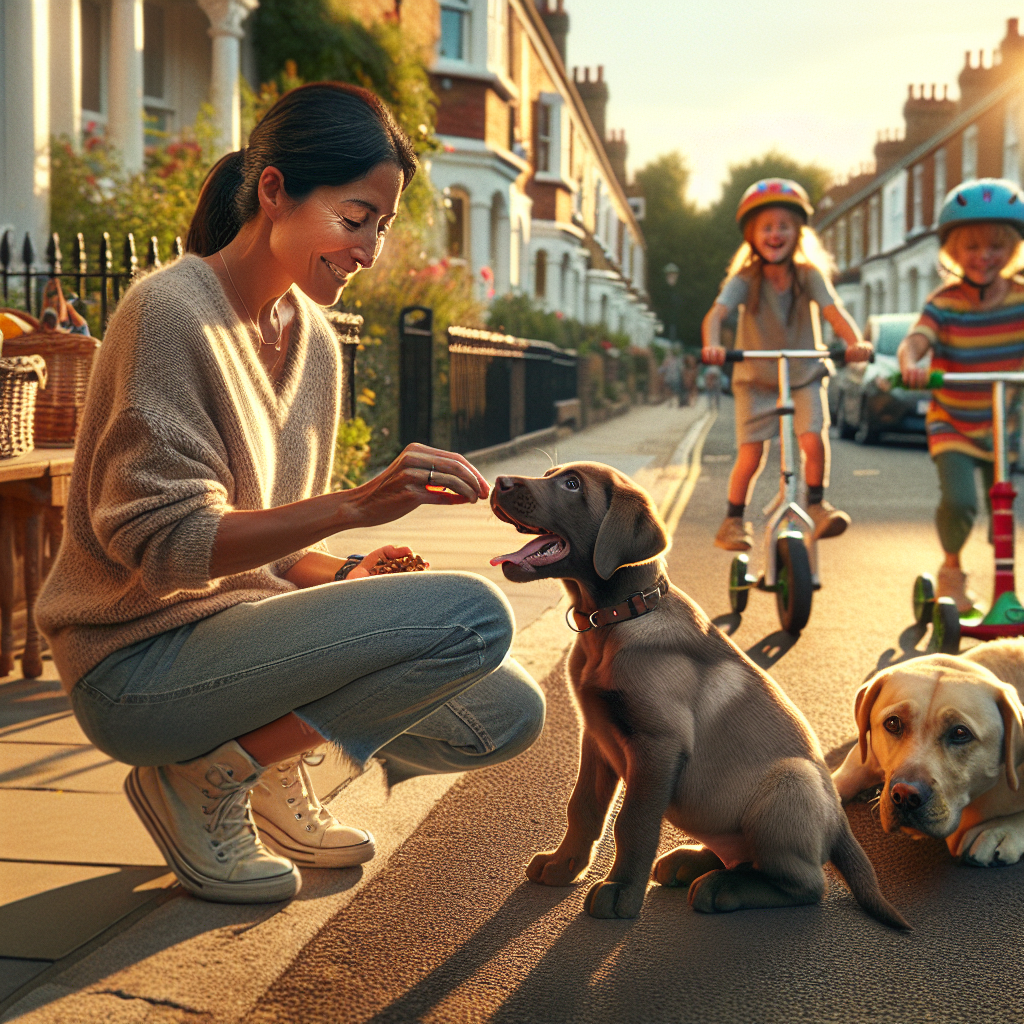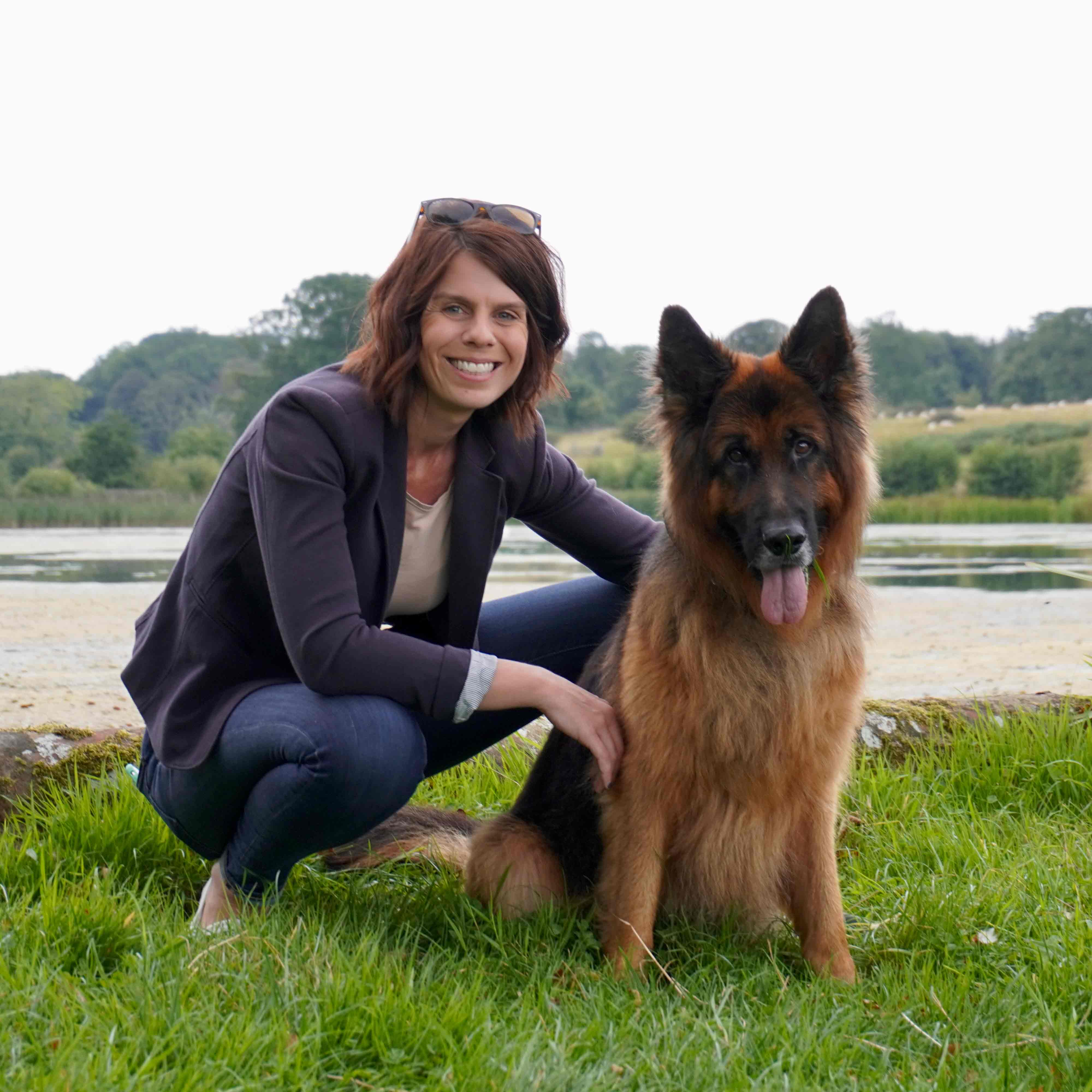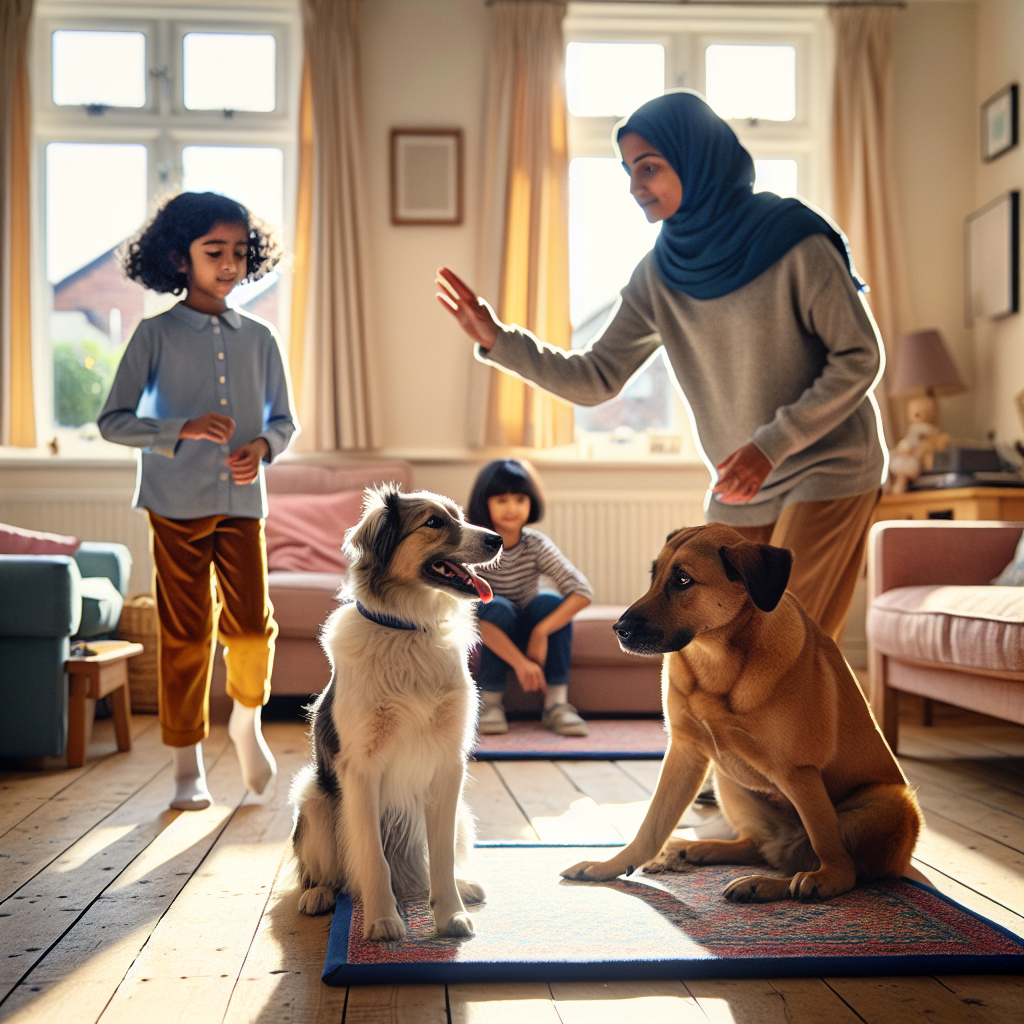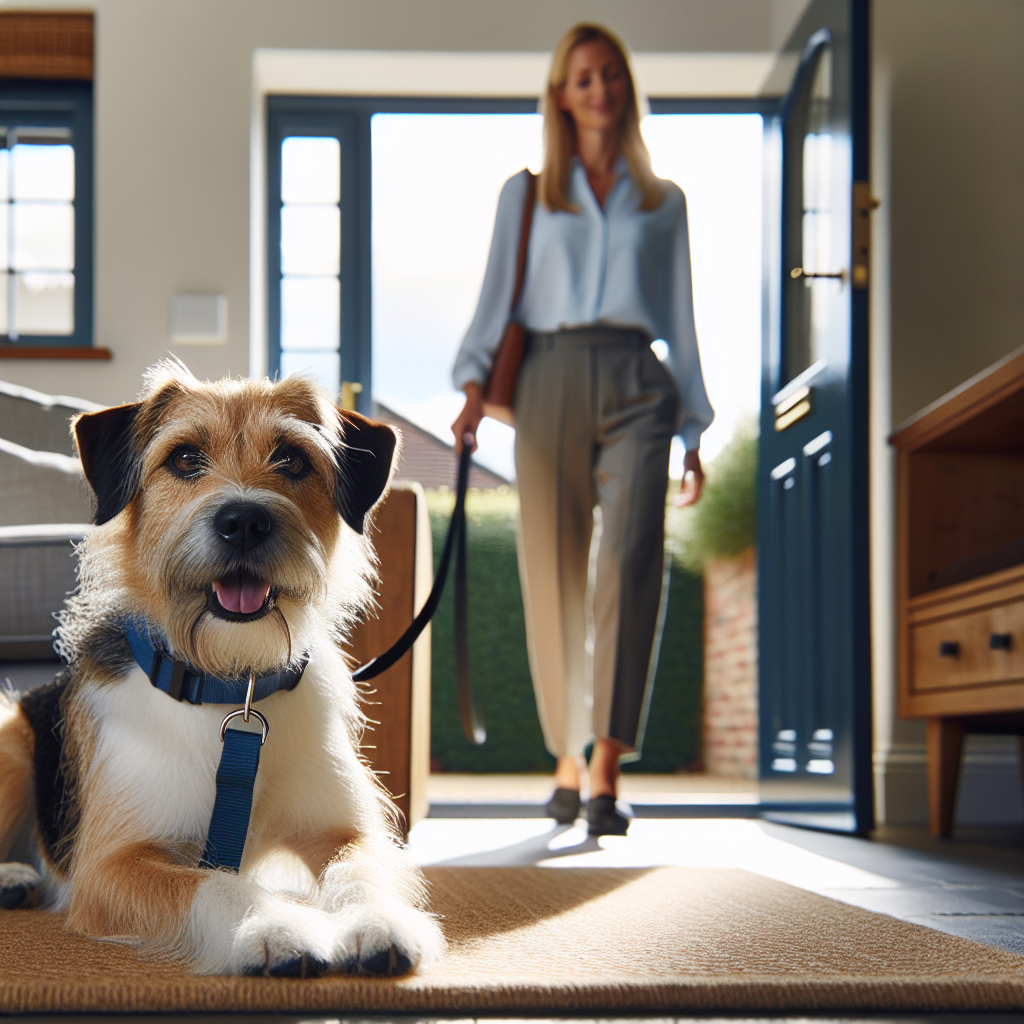Puppy Socialisation Checklist

Why Your Puppy Socialisation Checklist Sets Up a Lifetime of Confidence
Your puppy learns about the world at lightning speed. The way you guide those first meetings with people, dogs, places, and sounds shapes every choice they make later in life. A clear and practical puppy socialisation checklist turns guesswork into calm progress. At Smart Dog Training, we design every step so you can build steady confidence without overwhelm. From first cuddles to safe city walks, your plan is simple, kind, and proven by our results across the UK.
In the first weeks, the right experiences matter most. That is why our programmes are led by a certified Smart Master Dog Trainer and supported by an SMDT who understands how puppies think and feel. With structure and gentle coaching, your puppy socialisation checklist becomes a daily habit that protects your dog from fear and confusion later on.
What Socialisation Really Means
Socialisation is not only time with other dogs. It is the careful pairing of new sights, sounds, surfaces, people, and places with good things your puppy loves. You create memories that say the world is safe. Your puppy socialisation checklist turns that big goal into small steps you can repeat every day.
Smart Dog Training sets the standard for this process. Your puppy learns at their pace. We focus on quality over quantity, and we track wins so you always know what to do next.
When to Start and How to Pace It
Start your puppy socialisation checklist as soon as your puppy comes home. You can begin safe, low risk exposures even before final vaccinations by keeping your puppy in your arms, in a carrier, or on clean ground. We pace sessions to match your puppy's focus and comfort. Ten minute sessions with rest periods are far better than long outings that drain energy and attention.
Many families ask for help in week one. Working with a certified Smart Master Dog Trainer gives you a clear plan, plus live coaching to read body language and adjust on the spot. You will see steady progress without pushing too hard.
Health and Safety While You Build Skills
Safety comes first. Choose low foot traffic places. Avoid unknown dog areas until your vet clears you for ground time. Carry your puppy to watch the world without direct contact. Use clean treats, fresh water, and short sessions. Your puppy socialisation checklist should include steps to reduce pressure, such as extra distance from triggers, turning away, and calm sniff breaks. Smart Dog Training uses simple safety rules that protect confidence while you meet your goals.
The Smart Dog Training Approach
Every part of your puppy socialisation checklist is built around positive pairing. We match a new experience with a reward your puppy values. We measure comfort, not just exposure. We slow down when needed, and we finish while your puppy still feels good. This is what keeps socialisation effective and kind. Your SMDT coach helps you plan targets for the week, test progress in real life, and celebrate wins that you can repeat.
Smart Dog Training programmes teach you how to adjust the scene. You choose distance, time, and the type of reward. You learn simple focus games that turn your puppy back to you when life gets busy. This creates a powerful habit that lasts into adolescence and adult life.
Core Elements of a Puppy Socialisation Checklist
Here is how Smart Dog Training structures a puppy socialisation checklist you can follow with ease.
People of All Ages and Appearances
- Adults, children, babies in prams, people with hats or glasses, and people carrying bags
- Teach calm greetings and polite choices by rewarding four feet on the floor
- Let your puppy observe first, then meet for a brief hello if they show soft, curious body language
Dogs and Other Animals
- Watch calm adult dogs at a distance first
- Choose one on one meets with known, polite dogs after you see relaxed behaviour
- Let your puppy disengage and return to you at any time
- From a safe distance, watch cats, birds, livestock, and wildlife without chasing or pulling
Sounds and Surfaces
- Traffic, bikes, scooters, bin lorries, sirens, and low level construction noise
- Different floor textures such as wood, tile, carpet, grass, gravel, metal grates, and ramps
- Pair each new sound or surface with tiny treats and calm praise
Handling and Grooming
- Gentle handling of ears, feet, tail, and mouth
- Short brush sessions with rewards for staying still
- Introduce nail clippers and toothbrush as props before real use
Household Life and Alone Time
- Doorbell, hoover, washing machine, and TV noises
- Calm crate time with a chew while you move about the room
- Very short absences that begin at seconds and build up with success
Travel and Vet Visits
- Short car sits with the engine off, then short drives with a safe restraint
- Practice calm waiting at the vet entrance, then the lobby, then a quiet exam room
- Reward for stepping on the scale and accepting a gentle exam touch
How to Use the Puppy Socialisation Checklist Each Week
Spread your targets across the week. Aim for two or three short exposures per day rather than one long session. Rotate categories so your puppy builds a wide range of good memories. Your puppy socialisation checklist is your map, not a race. Check off wins, note any tricky moments, and repeat easy steps before you add more challenge.
- Plan two people meets, two dog watches, one calm dog meet, and one vet prep each week
- Use three sound sessions, two surface sessions, and two handling sessions
- Build one to two minutes of easy alone time most days
If you want help setting targets, we will do that for you. Smart Dog Training breaks each item into small wins so you can keep sessions short and fun.
Calm Confidence Through Positive Pairing
Positive pairing is the engine behind your puppy socialisation checklist. We turn new into nice. Every sight, sound, and touch links to food, play, or access to something your puppy loves. Over time the world itself becomes the reward. Your puppy starts to look at a busy pavement and relax, because they expect good things will follow.
Smart Dog Training coaches you to end sessions on a high note. Stopping early is not a failure. It is a smart choice that protects confidence and keeps learning strong.
Reading Your Puppy’s Body Language
Body language tells you when to move closer, pause, or add space. Your puppy socialisation checklist only works when your puppy feels safe. Look for these signs:
- Relaxed face and open mouth
- Soft eyes and blinking
- Loose tail and easy movement
- Willing to take treats and engage with you
Slow down or add space if you see:
- Pinned ears, tucked tail, or still posture
- Yawning or lip licking when nothing is tiring or tasty
- Refusing treats or trying to hide
An SMDT will help you read these signs in real time and adjust your positioning. This is a core part of Smart Dog Training coaching.
Common Mistakes to Avoid
- Doing too much too fast. Your puppy socialisation checklist is not a speed test. Keep sessions short.
- Forcing greetings. Choice builds confidence. Let your puppy opt in and opt out.
- Only meeting dogs. Balance your plan with people, sounds, surfaces, handling, and travel.
- Waiting for final jabs before any exposure. You can do safe observation from your arms, a carrier, or the car.
- Ignoring stress signals. Slow down as soon as your puppy looks unsure.
Sample Two Week Puppy Socialisation Checklist
Use this simple plan to start strong. Adjust the numbers to suit your puppy and your week. The goal is calm quality, not volume.
Week One Targets
- People: Watch five different adults at a distance. Meet one calm adult who follows your cue to be gentle.
- Dogs: Watch two calm adult dogs from a distance. If your puppy is relaxed, greet one known, polite dog for a few seconds.
- Sounds: Play gentle urban sounds at a low volume for five minutes, three times. Pair with food or a chew.
- Surfaces: Step onto grass, carpet, wood, and a low ramp with treats.
- Handling: Touch ears and paws for two to five seconds, reward, and stop. Repeat daily.
- Travel: Sit in a parked car with the boot open for two minutes, then close it. Feed a small scatter of treats.
- Vet Prep: Step on a scale with a treat trail. Touch collar and lift a lip for a second, reward, and end.
Week Two Targets
- People: Add a person with a hat and a person with a pram. One child watch from a safe distance with treats.
- Dogs: One calm parallel walk with a known adult dog. Keep five metres spacing and reward check ins.
- Sounds: Short exposure to a bin lorry from a distance while you feed a steady treat stream.
- Surfaces: Try gravel and a short metal grate walk. Praise and treat for brave steps.
- Handling: Brush for three to five strokes. Reward each stroke and stop before your puppy moves away.
- Travel: One three minute drive. Reward calm in the car at the end, then lift out and rest.
- Vet Prep: Lift onto a low bench or mat, practice a two second still stand, reward, and release.
Check off each win on your puppy socialisation checklist. Note what was easy and what needs more space or time next session.
Progress Tracking and Milestones
Tracking is the secret to momentum. Write down the date, the scene, your puppy's comfort level, and one thing to change next time. With Smart Dog Training, your SMDT will show you how to rate each exposure from one to five. You aim to stay in the comfortable zone most of the time, with brief visits to mild challenge and quick returns to easy wins.
Key milestones to look for include:
- Choosing to look back to you when something moves or makes a noise
- Relaxed greetings with soft body language
- Accepting brief handling without fuss and with quick recovery
- Eating, playing, or sniffing in new places
Turning Setbacks into Wins
Even with a strong puppy socialisation checklist, you will face days when things feel sticky. A bin lorry might pass too close. A dog might rush up. A child might squeal. Your plan does not break. You simply add distance, drop your criteria, and feed a longer reward stream. Then you end on a small success, such as a hand target or a short sniff walk. With Smart Dog Training support, you will know exactly how to reset and move on.
When to Seek Professional Help
If your puppy shows repeated fear, stiffness, or struggle in common scenes, or if they refuse food in new places, it is time to bring in a certified Smart Master Dog Trainer. Skilled coaching will protect your progress and prevent rehearsals of worry. Smart Dog Training exists to guide this process in a calm and friendly way, so your puppy socialisation checklist stays on track and you can enjoy outings again.
Ready to start solving your dog’s behaviour challenges? Book a Free Assessment and speak to a certified Smart Master Dog Trainer in your area.
Frequently Asked Questions
When should I start my puppy socialisation checklist?
Start on day one at home. Begin with safe observation and handling, then build to short outings. Your vet can advise on ground time, and Smart Dog Training will show you safe ways to get ahead without risk.
How many new things should my puppy see each week?
Quality beats quantity. Aim for two or three short sessions a day, with a mix of people, sounds, surfaces, and safe dog views. Your puppy socialisation checklist helps you rotate targets across the week.
What if my puppy seems scared?
Add distance, lower intensity, and feed a gentle treat stream. End the session on a small success. An SMDT can help you read signs and adjust your plan so your puppy stays within their comfort zone.
Do I need other puppies for socialisation?
Not always. Your puppy socialisation checklist should include dog watching and a few well chosen meets with calm adult dogs. Balanced exposure to the world matters more than play alone.
How long should each session last?
Keep sessions short. Five to ten minutes is great for most puppies, then a rest. Several short sessions will beat one long session every time.
Can I socialise before vaccinations are complete?
Yes, with care. Hold your puppy, use a carrier, watch from your car, or choose clean areas. Smart Dog Training will show you safe steps that let you build confidence right away.
What if I miss a week?
Start again with easy wins. Repeat a few simple items from your puppy socialisation checklist, then add new items as your puppy relaxes. Consistency over time is what counts.
Your Next Steps with Smart Dog Training
Your puppy is learning in every moment. A clear puppy socialisation checklist makes that learning kind, safe, and fun. With Smart Dog Training, you will not guess. You will follow a plan that a certified Smart Master Dog Trainer has tested with puppies across the UK. You will track progress, adjust calmly, and watch your puppy grow into a steady, happy companion.
Your dog deserves more than guesswork. Work with a certified Smart Master Dog Trainer (SMDT) and create lasting change. Find a Trainer Near You



